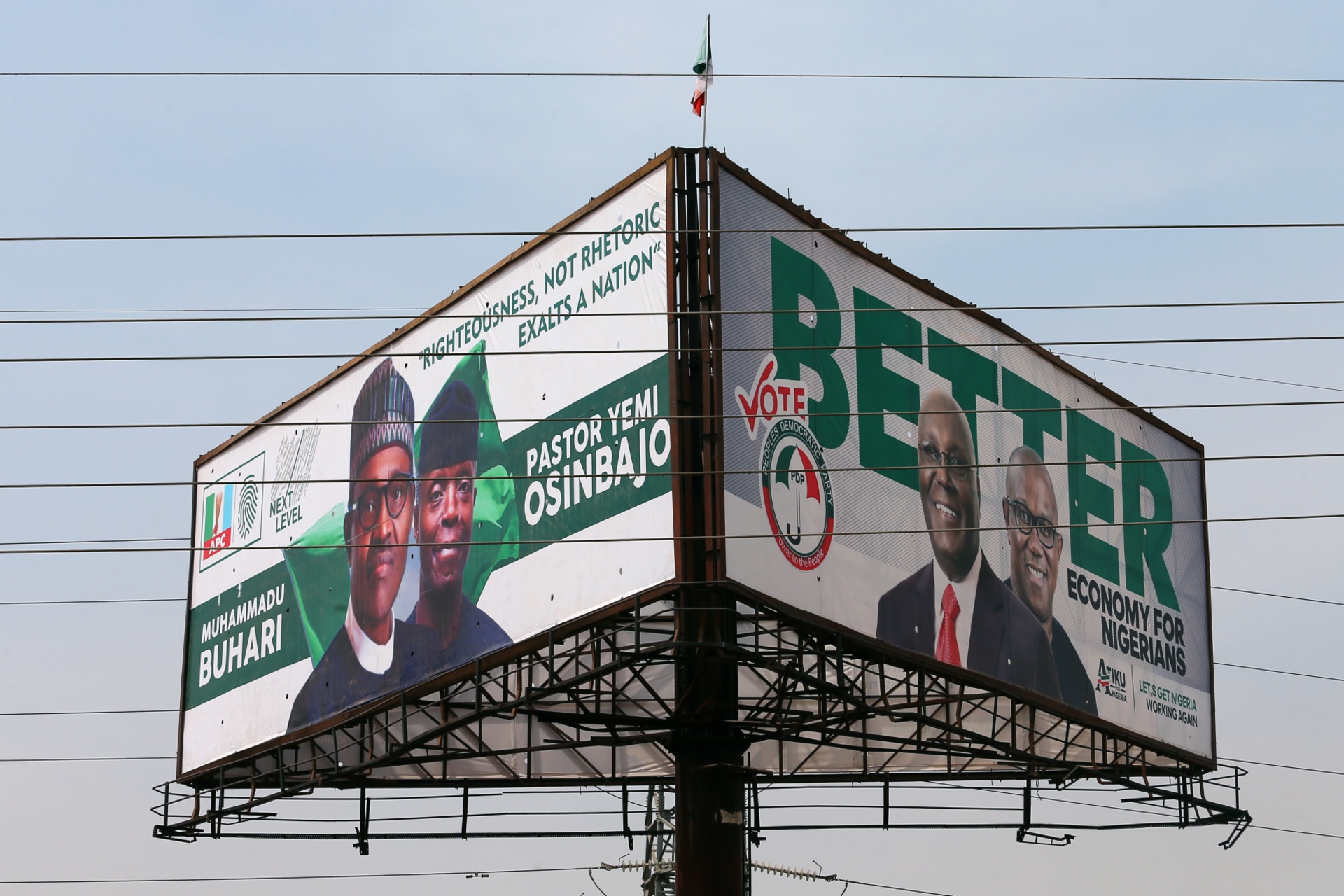What to Watch for in Nigeria’s Election

By experts and staff
- Published
By
- John CampbellRalph Bunche Senior Fellow for Africa Policy Studies
Nigerians will go to the polls to cast votes in national elections on Saturday, February 16. The country has a long history of vote rigging and it has evolved over time. In earlier years it took place at the polling stations, but rigging eventually moved to the vote counting, tabulation, and collation stages. The Independent National Elections Commission (INEC) instituted reforms before the 2015 elections that led to elections more credible than in the past, and has continued to improve the process, but reforming INEC is only part of the solution. The 2018 gubernatorial elections in Osun and Ekiti states demonstrated new methods of rigging, notably intimidation designed to keep certain voters from the polls and vote-buying.
It is worth noting that levels of pre-election violence in 2019 appear to be lower than in 2015. The fact that the two leading candidates, incumbent president Muhammadu Buhari and former vice president Atiku Abubakar are both northern Fulani Muslims reduces the likelihood that electoral violence could morph into ethno-religious violence, as it did in 2011, but does not necessarily reduce the likelihood of election-related violence itself. Nevertheless, it is unclear if the positive trajectory punctuated by the 2015 elections can be maintained in 2019 in light of new rigging tactics.
Below are some questions I will be asking on Election Day:
- How well does the INEC fulfill its logistical duties? Are ballots delivered to polling places on time, and do polling places open on time? National elections in Nigeria are a challenge, with some 80 million registered voters and 120,000 polling places.
- How large is the voter turnout? Of the 80 million registered voters, it is said that 70 million have collected their registration cards, necessary if they are to vote. A large turnout will indicate public confidence in the process.
- What is the voter turnout in areas of high insecurity, including the northeast, the middle belt, and the Niger delta?
- Are the internally displaced able to vote? Do they?
- Is there widespread gender discrimination? Gender discrimination is ubiquitous in Nigerian life; the question is the extent to which it prevents women from voting.
- Are domestic and international election observers given full access to the voting process?
- Do the security services practice intimidation, as they have in recent gubernatorial elections, against voters and observers?
- Is there evidence of extensive vote-buying, again, as there was in recent gubernatorial elections?
Perhaps the most important question of all is whether or not Nigerians see the results as credible. The answer to that must await not only the voting on election day, but also ballot counting and the outcome of the all but inevitable court challenges.